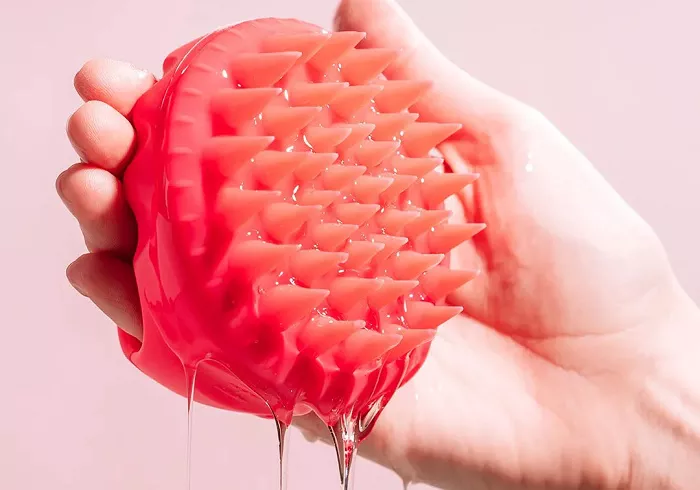When it comes to hair care, the scalp often gets overlooked. While leave-in conditioners and trendy oils grab most of the attention, professionals agree that a well-moisturised scalp is essential for maintaining overall hair health and preventing discomfort such as dryness, itching, and flaking.
“A dry scalp is usually a sign that your skin barrier needs support,” explains Dr. Alexandra Bowles, a board-certified dermatologist at Mona Dermatology. “There are simple yet effective ways to restore moisture and balance.”
Why Scalp Moisture Matters
Hair texture plays a significant role in how the scalp retains or loses moisture. According to celebrity hairstylist Vanessa Ocando, curly or coarse hair types naturally produce less sebum and are therefore more prone to dryness. “On the other hand, straight or fine hair allows oils to move more freely down the shaft, making it seem less dry but more vulnerable to buildup,” she says.
Dr. Bowles emphasizes the importance of a personalised hair care routine. “Over-washing or using harsh products can dry out the scalp, especially in those with finer hair. Listening to how your scalp feels between washes is a helpful first step,” she notes.
Hair Care Steps for a Hydrated Scalp
To effectively moisturise the scalp, experts recommend starting with a gentle, hydrating shampoo. Ingredients like aloe vera, glycerin, and oat extract can soothe irritation while adding much-needed moisture. Dr. Bowles advises against using hot water when shampooing, recommending lukewarm temperatures to prevent stripping the scalp of its natural oils.
Scalp exfoliation also plays a key role. “Using your fingertips or a soft brush once or twice a week can lift dead skin cells, allowing hydrating treatments to penetrate more deeply,” says Dr. Bowles. She suggests using scalp masks or serums that contain nourishing oils like jojoba or squalane.
Addressing Dryness and Flakes
Environmental factors like cold weather, as well as overuse of dry shampoo or infrequent washing, can all contribute to dryness. “Start with a hydrating scalp treatment,” Ocando advises. “If there’s product buildup or flaking, use a scalp scrub and massage thoroughly.”
Monique McMahon, founder of Que Colour and global ambassador for Christophe Robin Paris, stresses the importance of internal health, noting that stress and hormonal changes can also affect scalp condition. “My go-to is a smoothing sea salt scrub to exfoliate and cleanse. For prevention, regular brushing with a boar-bristle brush helps distribute natural oils and improve blood circulation.”
Choosing the Right Products
While traditional conditioners are designed for the hair shaft, not the scalp, some lightweight formulas with ingredients like panthenol or glycerin can provide added moisture. Ocando warns, however, that applying standard conditioner to the scalp may lead to buildup if not rinsed thoroughly.
To avoid greasy hair, McMahon suggests applying scalp treatments before shampooing. Water-based serums are another lightweight option. “Apply them right after washing, while the scalp is still damp, to help the product absorb more efficiently,” says Ocando.
Professional and Natural Remedies
Dermatologists often use evidence-based treatments for scalp dryness, depending on the underlying cause. “This could include medicated shampoos, corticosteroids, or serums with hyaluronic acid or ceramides,” Dr. Bowles explains. For routine care, she recommends lightweight leave-in treatments and regular, gentle exfoliation.
Natural options like jojoba, coconut, or argan oil can also be beneficial. Bowles and Ocando both suggest applying just a few drops, massaging them in, and brushing through with a soft bristle brush. Aloe vera is another natural remedy that soothes irritated areas.
“Staying hydrated and eating a nutrient-rich diet can also support scalp health from the inside,” Bowles adds. “Consistency is key when it comes to natural remedies.”
Common Causes of Scalp Dryness
There are several potential triggers for a dry or irritated scalp. These include harsh shampoos (especially those with sulfates or alcohol), product buildup, and infrequent cleansing. Skin conditions like eczema, psoriasis, or seborrheic dermatitis are also common culprits.
Certain hair products can exacerbate the problem. Ocando points to drying alcohols and styling products like volumizers or texturizers as frequent offenders. “Balance is crucial. Your scalp needs attention just like your skin does,” she says.
McMahon recommends using resources like the Yuka app to review product formulations and avoid ingredients that can strip moisture. Even natural oils, if undiluted, can be irritating. “For example, rosemary oil can cause dryness if applied directly,” she cautions.
Taking care of your scalp is foundational to maintaining strong, healthy hair. Incorporating simple hair care tips such as gentle cleansing, proper exfoliation, and targeted hydration treatments can prevent dryness and promote long-term hair health. With a personalised approach and consistency, anyone can achieve a well-moisturised scalp without greasy buildup.
Related Topics:
- 6 Effective Ways to Prevent Dandruff and Hair Fall
- Top 4 Monsoon Tips for Healthy Skin and Hair
- £12 Hair Tonic Boosts Growth and Thickness, Thicker Hair


